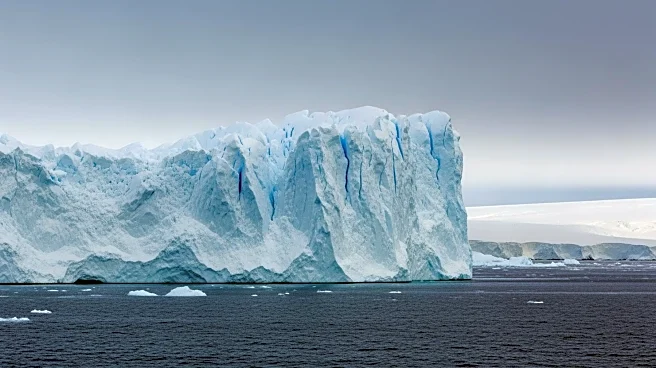What's Happening?
Research from The Australian National University and the University of New South Wales indicates that Antarctica is undergoing rapid and potentially irreversible changes due to rising carbon emissions.
The West Antarctic Ice Sheet is at extreme risk of collapse, which could raise global sea levels by over three meters, threatening coastal populations worldwide. The decline in Antarctic sea ice and weakening ocean circulation are exacerbating these changes, with significant impacts on ecosystems and wildlife, including emperor penguins and krill.
Why It's Important?
The potential collapse of the West Antarctic Ice Sheet poses a significant threat to global sea levels, which could impact coastal cities and communities worldwide. The loss of sea ice and changes in ocean circulation could lead to increased regional warming and affect marine ecosystems, threatening biodiversity. These developments underscore the urgent need for global action to reduce carbon emissions and mitigate climate change impacts, as they could have far-reaching consequences for countries like Australia and beyond.
What's Next?
The study calls for urgent global efforts to reduce greenhouse gas emissions to limit global warming to 1.5 degrees Celsius. Governments, industries, and communities must incorporate these Antarctic changes into their climate adaptation planning. The research supports the Australian Antarctic Science Decadal Strategy 2025-2035, aiming to understand and address the rapid changes in Antarctica.
Beyond the Headlines
The study highlights the interconnectedness of Antarctic changes with global climate systems, emphasizing the need for international collaboration in climate research and policy-making. The ethical and cultural dimensions of conservation efforts in Antarctica are also significant, as they involve balancing environmental protection with the needs of affected communities.









